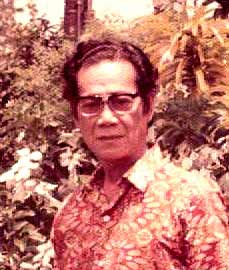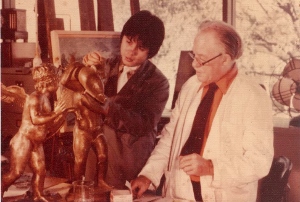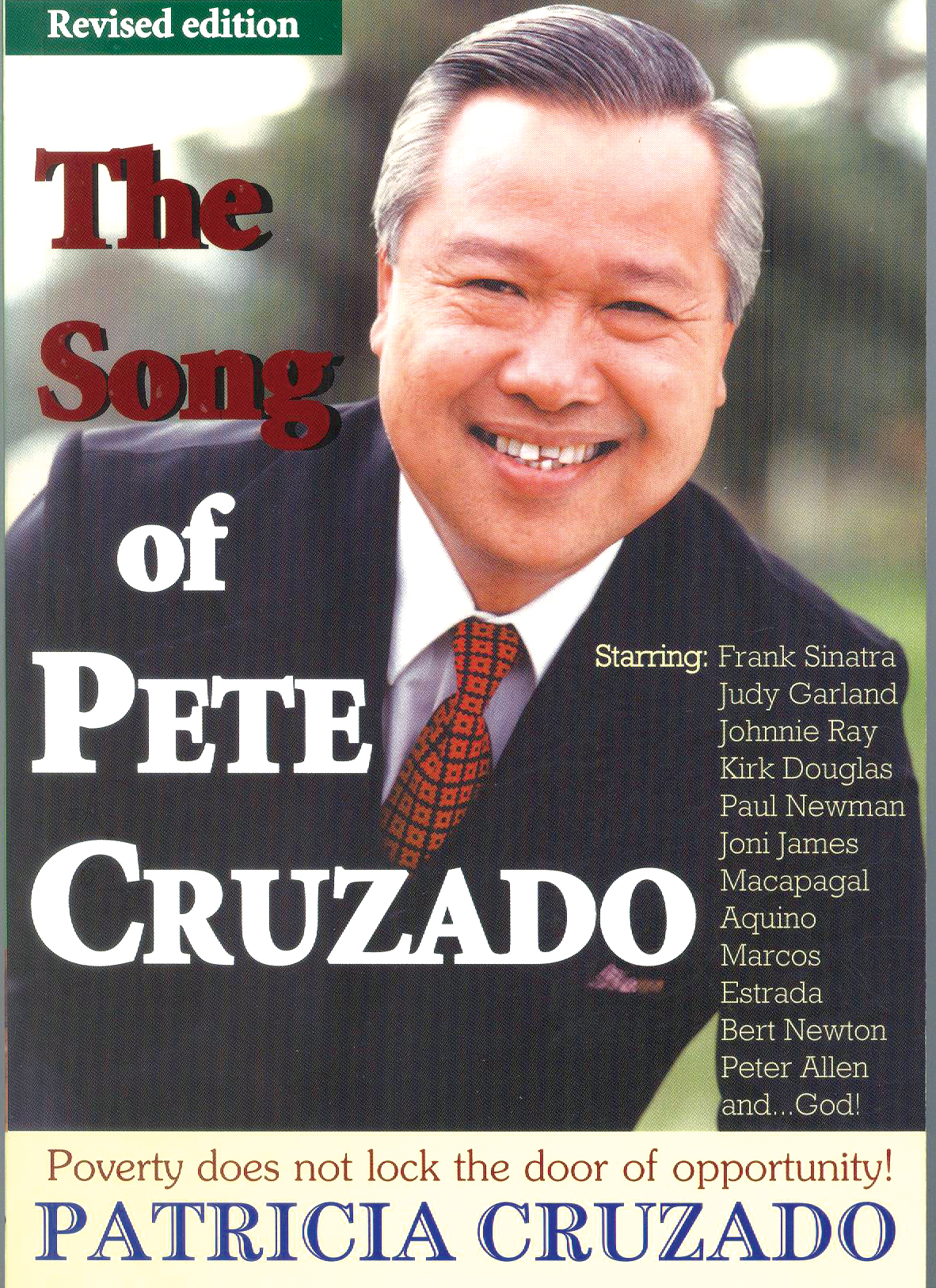On November 9 1985 or ten months after his death, Philippines’ well known historian Prof. Teodoro Agoncillo was honoured by the National Historical Commission of the Philippines with a historical marker at his former residence in Quezon City, Philippines in recognition of his contribution to the country and the Filipinos as historian, teacher, scholar, poet, editor and university professor.
Professor Agoncillo, together with nationalist and Philippine senator Claro M. Recto, among other pillars of the nationalist movement in the country, spearheaded the Filipino point of view in writing and interpreting Philippine history.
Professor Agoncillo wrote the book “Revolt of the Masses: The Story of Bonifacio and the Katipunan” which virtually became the yardstick for writing Philippine history under Filipino perspective. The book is about the events surrounding the life of the great Philippine hero of the masses Andres Bonifacio with Agoncillo’s nationalist point of view which was even considered by some as bordering on Marxism.
TeodoroAndalAgoncillo was born on 9 November 1912 in Lemery, Batangas towards the end of American direct governance of the Philippines and the beginning of Filipino participation in national political processes. Four years later the Jones Act 1916 of the American congress provided the Philippine Islands more autonomous government to prepare the territory for independence.
In 1934, Agoncillo completed his Bachelor of Philosophy and the following year his Master of Arts from the University of the Philippines. From 1951 to 1956, he worked as a linguist at the Institute of National Language.
Agoncillo taught Tagalog language and literature at the Manuel L. Quezon University in Manila, became editor of a number of literary and Tagalog language magazine and in 1958 was invited to teach at the University of the Philippines. He assumed the chair of the department of history at UP from 1963 to 1969. From 1976 to 1977 he held the prestigious Rafael Palma Professorial Chair on Philippine History at UP.
His book “Revolt of the Masses” stirred debate on Philippines history and how many have written about it and inspired conservative histo-rians to review their work. During one conference of the International Association of Historians of Asia held in Manila, Agoncillo presented a paper categorically stating that truthful Philippine history started only 1872 the time of the Cavite Mutiny and the subsequent execution of three Filipino priests Mariano Gomes, Jose Burgos and Jacinto Zamora.
Agoncillo explained that from the arrival of the Spaniards in the 16th century up to 1872, the history of the Philippines were written by Spaniards who favoured the recording of events in the Spanish point of view. The role of the Filipinos in history was not discussed, he added, and because of this there was no Philippine history before the execution of the three priest known as GomBurZa.
According to Agoncillo, nationalism is not only looking after one’s own, but also the selection of people who would run the government, people whose goals in life was not simply to enrich them whilst in power. In a classic illustration, Agoncillo said we are not surprised if an illiterate man sells his rights at small token price because we know he is ignorant. Agoncillo added that we are sad when an educated man sells his rights because instead of becoming a symbol of integrity and discipline he becomes a symbol of what is rotten in society.
In 1980 and towards Agoncillo’s twilight years, noted Philippine historian Mr. Ambeth Ocampo conducted a three-day interview with the aim of recording the historian’s spontaneous answers to the many controversies in Philip-pine history. The three-day interview was published later entitled “Talking History: Conversations with Teodoro A. Agoncillo”, a book which became valuable reference on Philippine history and renown for incisive review of history.
One retired professor of Philippine history in the Philippines said the publication of the interview brought to surface some of the deep wounds that have been healed in the course of time. Agoncillo himself said earlier that the goal of the historian is to write what really happened based on historical documents.
Philippine national artist for Literature Mr. Sionel F. Jose at one time noted that there is problem with Agoncillo’s observation because not all events that took place are not documented and many of the body of knowledge exist because of oral history. To which Agoncillo replied that is the reason why the responsibility of the historian is difficult because Filipinos are not history conscious.
In another illustration, Agoncillo said many Filipinos do not keep the letters they receive nor they make a record of their replies to letters received. He said in early 1950, he suggested to the then Philippine President Sergio Osmeña to write his biography, particularly that year he was associated with because of its importance to Philippine history. The reply of President Osmeña: “If I write my biography I will step on many toes.” Agoncillo said the duty of the historian is to tell the story of what really happened, regardless of who would be affected.
In 1963, the late President DiosdadoMacapagal appointed Agoncillo to the board of the National Historical Commis-sion (NHC) where he served until his death at age 72. This writer worked with him at NHC and was acquainted with many of his body of work and was deeply inspired on to engage in historical writing and research and translation of Spanish language documents.
[portfolio_slideshow id=239]
In collaboration with another research-translator, this writer came about with the Tagalog translation of NHC’s Histo-rical Calendar, a day-to-day record of important events in Philippine history up to the year 1970 which opened the writers history writing career and in affiliated areas leading to government scholarship overseas and eventual migration to Australia after years of service at NHC.
Recalling an incident during Agoncillos’ youthful years as Chief of the Research and Translation Division of the old National Language Institute, a friend of Agoncillo Mr.Marte Garcia said Agoncillo was a man of principles who was willing to fight for them. At the risk of his government position, Agoncillo was able to face off with then powerful agency director to question the competence and efficiency of the director’s action action and to redress the grievance of bypassing his knowledge in promoting somebody under his team.
Agoncillo wrote the following other books on Philippine history: “Malolos: Crisis of the Republic; “The Fateful Years”; “Japan’s Misadven-tures in the Philippines”; “History of the Filipino People”; “Filipino National-ism, 1971-1972’; and “The Burden of Proof: the Vargas-Laurel Collaboration.”











Leave a Reply